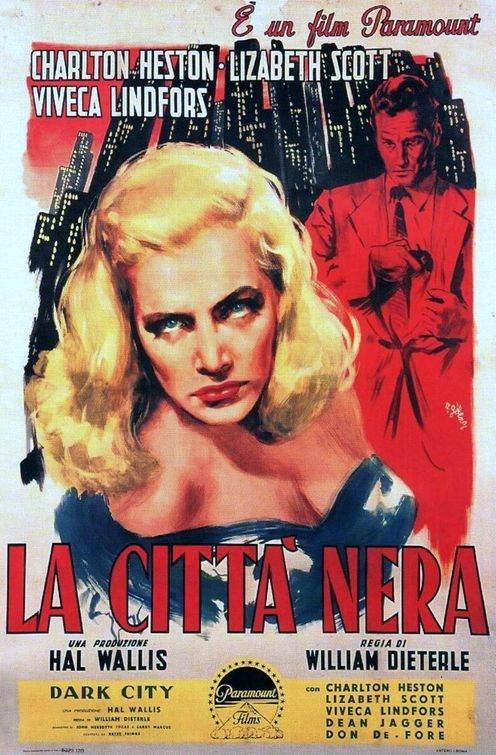May 1999 | In the wake of the Columbine shootings, Congress holds heated gun-control debates. Then-Vice President Al Gore cast a tie-breaking vote in the Senate to require background checks for firearms purchases at gun shows and to include safety devices, notably trigger locks, for new guns that are sold. The measure stalls in the House after a series of compromises left people on both sides of the issue disappointed.April 20, 1999 | Students Eric Harris and Dylan Klebold attack Columbine High School near Denver, killing 12 fellow students and a teacher. Another 24 people are wounded. The attackers then kill themselves. The massacre touches off renewed debate over U.S. gun-control laws.
October 2002 | Ten people are killed and three are wounded in sniper-style attacks in the Washington, D.C., metro region. John Muhammad and teenage accomplice, Lee Malvo, were later convicted.
April 27, 2003 | Charlton Heston makes his last appearance as the president of the National Rifle Association, raising a rifle over his head and delivering his trademark line, “From my cold, dead hands.”
June 2003 | A UCLA study published in Injury Prevention, a peer-reviewed academic journal, shows that more than half of firearms dealers questioned in an undercover survey would allow buyers to illegally purchase a firearm on behalf of someone else.
March 2004 | Senators hoping to shield the firearms industry from lawsuits abruptly kill their own bill after it was amended to renew an expiring ban on assault weapons and to require background checks for gun show purchases.
July 2004 | A Justice Department report shows more than 7,000 instances in 2002 and 2003 in which a person prohibited from buying a firearm under federal law was able to do so. It also found that less than 1 percent of the 120,000 people who tried to unlawfully purchase a gun in that timeframe were prosecuted.
Sept. 13, 2004 | Congress allows a 10-year ban on the sale of 19 types of military-style assault weapons to expire. President Bill Clinton signed the bill in 1994, which directed that the ban expire unless Congress reauthorized it.
December 2004 | Congress eliminates direct funding for President George W. Bush’s gun prosecution program, Project Safe Neighborhoods. Related anti-gun programs retained their funding.
December 2004 | The National Academy of Sciences releases a report declaring that accurate research on methods of reducing gun violence is impossible due to a lack of information on firearm ownership and by scholars’ inability to access information such as the Bureau of Alcohol, Tobacco and Firearms’ data on guns linked to crimes.
December 2004 | Massachusetts becomes the first state to implement an electronic instant-check system with fingerprint scanning for gun licenses and gun purchases. The system provides instant information on outstanding warrants, restraining orders and convictions, and links fingerprint scanners and computers at gun stores and police departments.
January 2005 | California becomes the first state to ban the manufacture, sale, distribution or import of the powerful .50-caliber BMG, or Browning machine gun rifle. Gun control advocates say it could be used by terrorists for assassinations or to drop an airliner.
March 12, 2005 | Terry Ratzmann, a computer technician, opens fire during a sermon in a Wisconsin church , killing seven and wounding four before killing himself.
October 2005 | After it clears Congress, President Bush signs the Protection of Lawful Commerce in Arms Act, which limits the ability of gun crime victims to sue firearms manufacturers and dealers for damages. The bill passed after an amendment was added to require new guns to include trigger locks.
April 2007 | A judge rules that depositions by the parents of the Columbine gunmen would remain sealed until 2027.
April 16, 2007 | After passing a background check even though a Virginia court had deemed him mentally defective, Seung Hui Cho opens fire on the Virginia Tech campus with two handguns he purchased, killing 32 and wounding 24 others. Eighteen months later, Virginia sees a 60 percent jump in concealed gun permit applications.
November 2007 | With renewed interest in preventing people who are mentally ill from purchasing guns, the Justice Department reports that the FBI’s Mental Defective File, which lists people prohibited from buying guns, has ballooned from 175,000 names in June to nearly 400,000.
Jan. 8, 2008 | President Bush signs a rare piece of bipartisan gun-control legislation aimed at keeping people who are severely mentally ill from purchasing guns. The original legislation was introduced in 2002 by New York Democrats Sen. Charles Schumer and Rep. Carolyn McCarthy after a church shooting, but it did not gain the support to pass until the Virginia Tech shootings.
June 26, 2008 | The U.S. Supreme Court rules in the closely watched District of Columbia v. Heller case that the Second Amendment affirms an individual’s right to bear arms. It also overturned the District’s 32-year ban on handguns.
September 2008 | A Pennsylvania state court rules that Philadelphia was not entitled to set its own gun laws, invalidating five gun-control measures passed by the City Council.
October 2008 | Despite Americans cutting back on large purchases amid the economic downturn, firearms and ammunition sales are up 8 to 10 percent compared to the same period in 2007.
March 10, 2009 | A gunman in Alabama kills nine people including some family members before taking his own life.
March 19, 2009 | A federal judge blocks a last-minute rule enacted by President Bush that allowed visitors to national parks to carry concealed weapons.
April 3, 2009 | Jiverly Wong, a 41-year-old Vietnamese immigrant, shoots 13 people at an immigration services center in Binghamton, N.Y., before killing himself.
Sources: The Associated Press, the Washington Post, the New York Times, the Wall Street Journal, Reuters, Bloomberg

